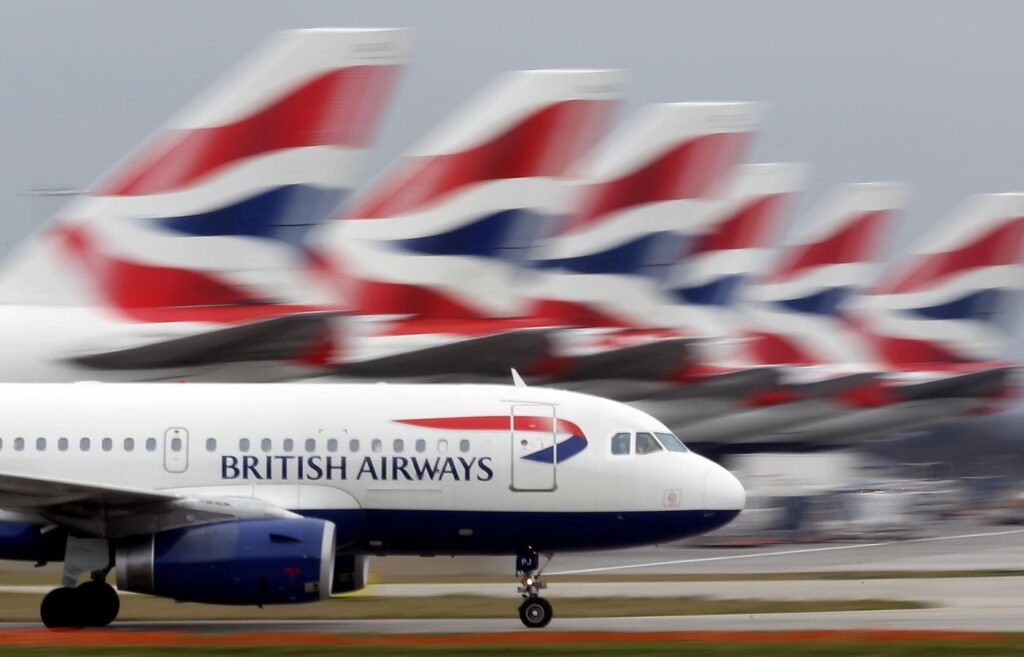International Airlines Group, the owner of British Airways, has inked yet another deal to upscale its near-term intake of sustainable aviation fuel.
In a market update on Tuesday, the airline holding company announced a ten-year purchase agreement with Sacramento, California, U.S.-headquartered e-SAF producer Infinium commencing late 2026.
Under the terms of the deal, Infinium will supply IAG with e-SAF to support any of its five airlines – Aer Lingus, British Airways, Iberia, LEVEL and Vueling.
Produced from water, waste CO2 and renewable energy – e-SAF is expected to reduce life-cycle greenhouse gas emissions by approximately 90% compared to conventional jet fuel.
In a joint statement, both companies said this new class of fuel is not encumbered by feedstock limitations, has a higher degree of emissions reduction versus conventional jet fuel and has a relatively “low land and water-use footprint.”
It is also a “drop-in” replacement for aviation fuel that requires no changes to existing aircraft engine designs. The e-SAF for IAG will be produced at Infinium’s Project Roadrunner facility, located in West Texas.
Roadrunner is set to be the largest global producer of e-SAF once fully operational and has received funding commitments from Brookfield Asset Management and Bill Gates’ Breakthrough Energy. It is Infinium’s second eFuels project that is currently being developed after Project Pathfinder in Corpus Christi, Texas.
For its part, IAG used approximately 12% of the world’s supply of SAF in 2023. It continues to upscale its usage of sustainable fuels to meet its emissions targets. In February, the company signed what it described as its “largest” SAF partnership at the time with Berkley, California, U.S.-based carbon transformation firm Twelve.
Under that 14-year agreement commencing next year, Twelve will supply IAG with 260 million gallons (nearly a billion liters or 785,000 tons) of e-SAF by also deploying a next generation power-to-liquid technology.
The move made IAG the first European airline group to confirm an e-SAF deal ahead of its competitors. The initial fuel deliveries are expected from Twelve’s plant in Moses Lake, Washington.
IAG has outlined its ambition for 10% of its flights taking off using SAF by 2030. The latest deal implies it has now secured more than one-third of the SAF needed to reach its intended end-decade target.
The paucity of e-SAF projects in Europe has seen the airline group and its competitors venture well beyond the continent to remain on track with their low carbon emissions targets.
Jonathon Counsell, IAG’s Group Sustainability Officer, said: “So far, we’re on track to deliver our 10% 2030 SAF goal and agreements. Aviation as an industry is working hard to decarbonize and policy should focus on solutions such as SAF, rather than only increasing costs which risk affecting the competitiveness of the European aviation industry.
“What the industry needs is additional policy support to attract funds to construct SAF plants and reduce aviation’s reliance on fossil fuels.”
Robert Schuetzle, CEO of Infinium, said: “We are proud that IAG has chosen Infinium to help towards its sustainability goals. Long-term, bankable commitments like these are what drive the ability to ramp up production of e-SAF, which is a critical milestone for the airline industry and for e-fuels as an alternative to both fossil-based fuels and prior generations of SAF,”
As part of its wider sustainability roadmap, IAG is also investing in new aircraft and implementing fuel efficiency initiatives, purchasing and investing in SAF and advancing carbon removals to reduce emissions from its operations.
However, the airline group has previously said it was “under no illusions” about the magnitude of the decarbonization challenge. In 2019, IAG became the first global aviation group to commit to net zero emissions by 2050.
Read the full article here
